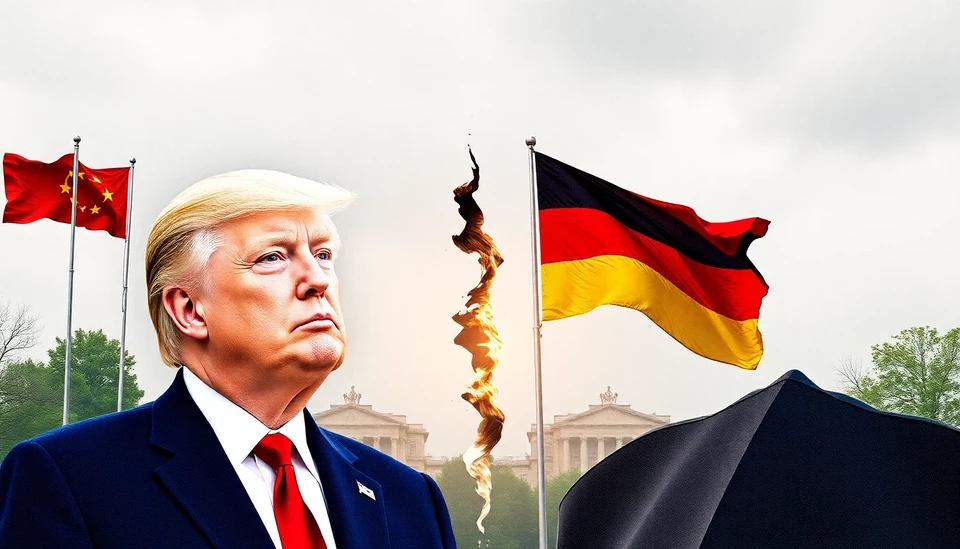
In a dramatic turn of events, the ongoing trade tensions between the United States and Germany seem poised for a significant escalation. As U.S. President Donald Trump continues to impose tariffs on a variety of German goods, the impact reverberates throughout Europe, coinciding with Germany's upcoming elections. Analysts suggest that this collision of economic and political factors may reshape international trade dynamics.
Trump's administration has increasingly viewed Germany as a significant trade adversary, imposing tariffs on German automobiles and machinery, citing issues related to trade imbalances and market access. The tariffs, initially introduced as part of an effort to protect American manufacturing jobs, have raised the stakes not only for German exporters but also for U.S. consumers, who are beginning to feel the pinch as prices rise.
As Germany approaches its elections, the economic ramifications of Trump's trade policies loom large in the political discourse. Major political parties are grappling with how to address the challenge posed by the U.S. administration while articulating a vision that resonates with voters concerned about job security and inflation. The rise of populist sentiments across Europe further complicates the landscape, potentially reshaping traditional alliances and alliances within Germany itself.
Prominent German politicians and economists have expressed concern that the trade war could weaken Germany's economy, which has been heavily reliant on exports. As the conflict escalates, Germany's leadership faces mounting pressure to respond effectively. Trade representatives are exploring avenues for negotiation, but the uncertain political climate in the U.S. complicates these efforts.
Moreover, the ripple effects of Trump's tariffs extend beyond Germany’s borders, affecting the broader European Union and its trade policies. As member states witness the impact of these tariffs on their own economies, the potential for a unified European response is a critical consideration in handling the U.S. administration's aggressive stance.
Looking ahead, analysts warn of a potential perfect storm that could ensue should the trade war intensify as election day approaches. Domestic political pressures may force German leaders to adopt a more hardline stance, complicating any prospects for resolution. This is particularly concerning as both sides seem unwilling to back down, raising fears of a prolonged conflict with tangible economic consequences for ordinary citizens.
The interplay between Trump's tariffs and Germany's political situation will be closely scrutinized in the coming months as personalities and policies collide. Observers are eagerly anticipating how candidates will position themselves regarding trade, and how they will respond to the evolving landscape shaped by external pressures.
In conclusion, the intersection of U.S. tariffs and German politics signifies a critical juncture not only for the two nations involved but for the international economy at large. The outcomes of these discussions and the forthcoming elections will undoubtedly influence global trade paradigms and economic policy for years to come.
#TrumpTariffs #GermanyElection #TradeWar #GlobalEconomy #EconomicImpact #Populism #EUTrade #InternationalRelations
Author: Daniel Foster




